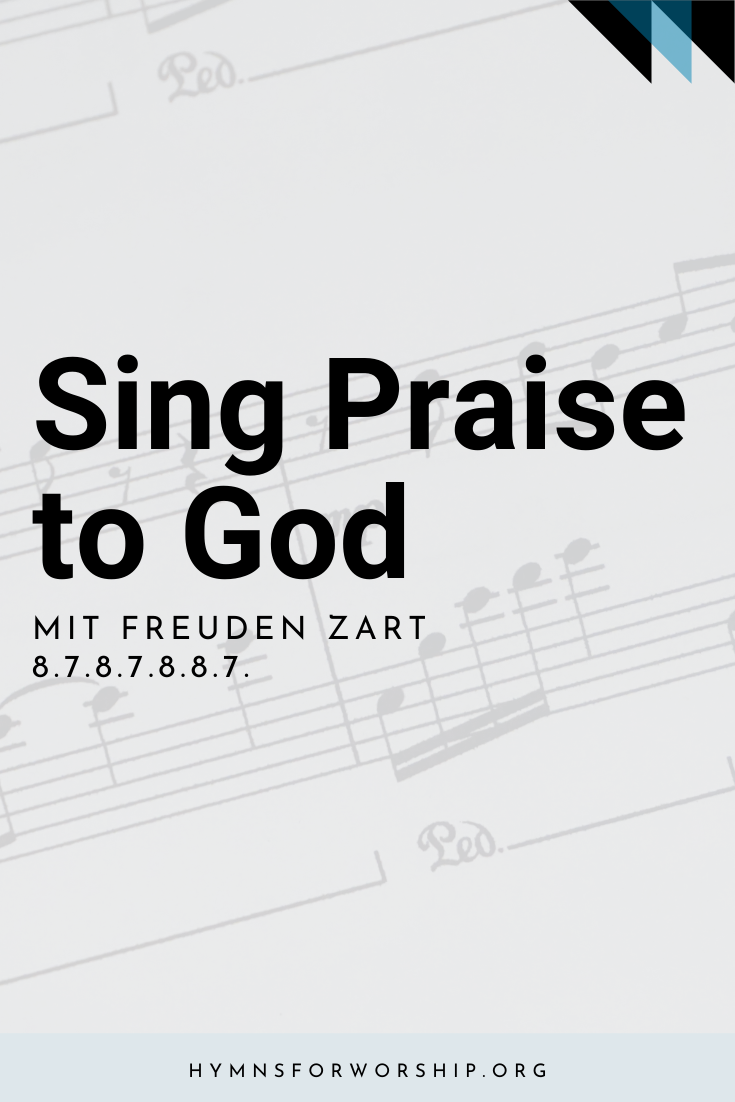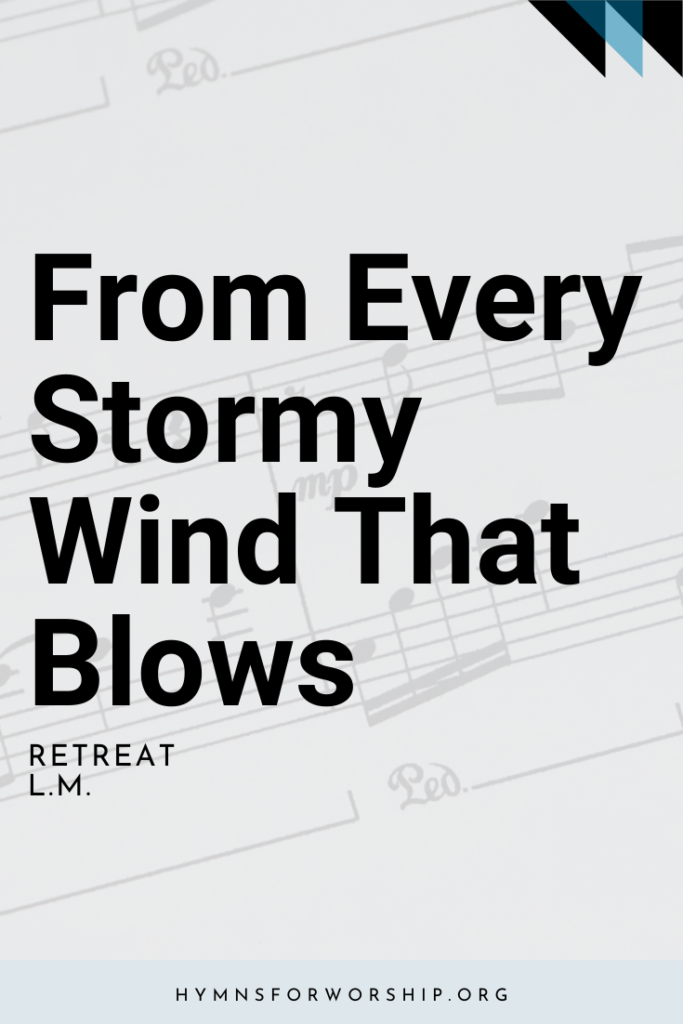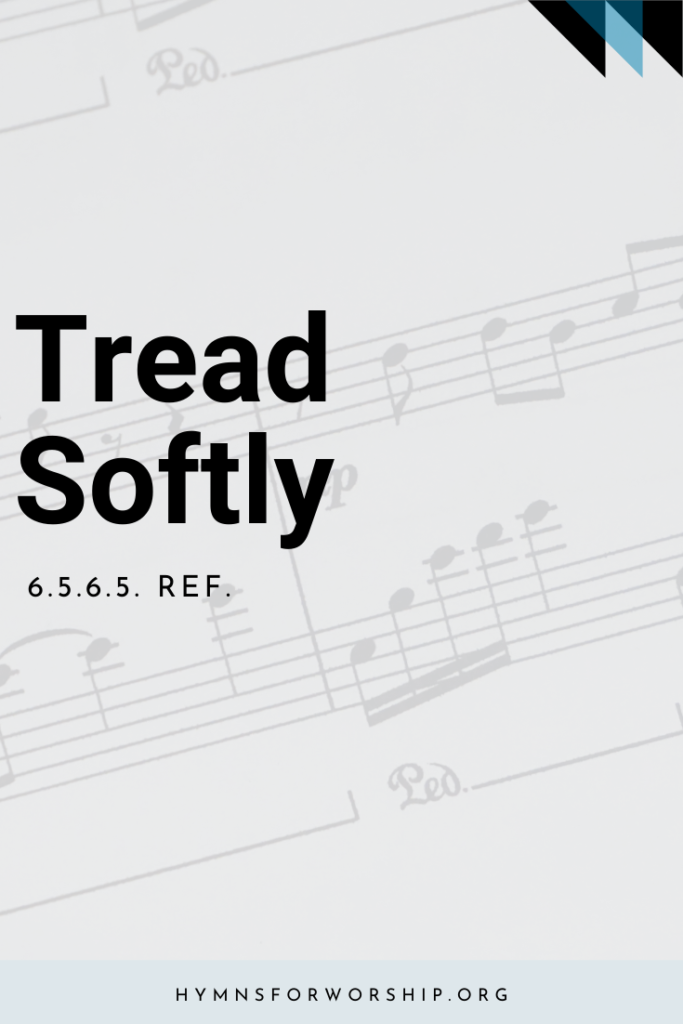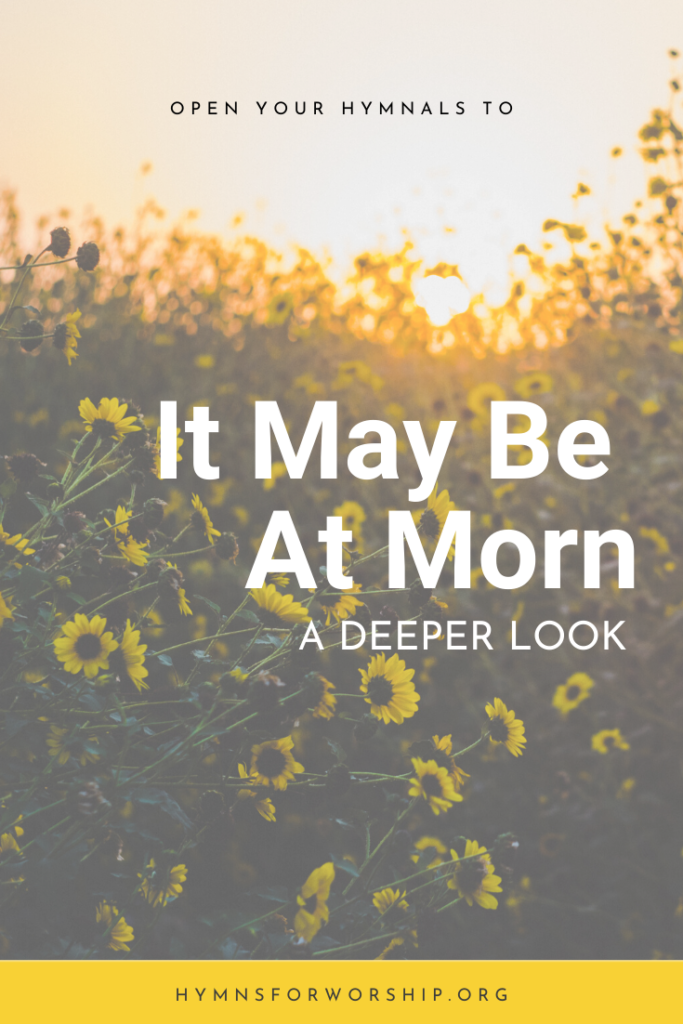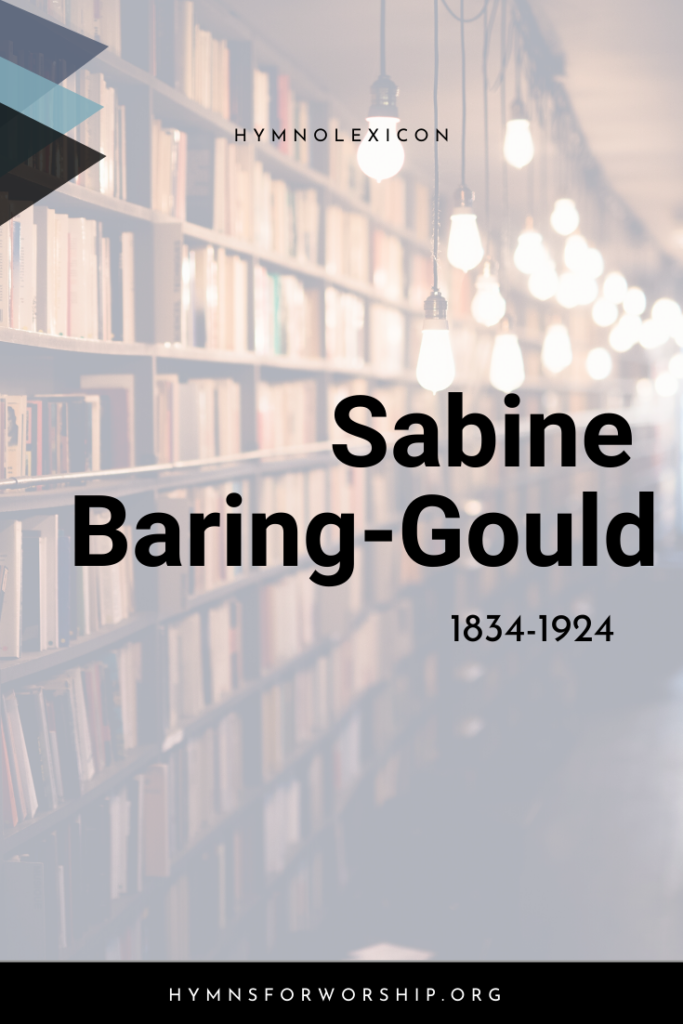WORSHIP >> Adoration & Praise
SDAH 29
Sing praise to God who reigns above,
the God of all creation,
the God of power, the God of love,
the God of our salvation.
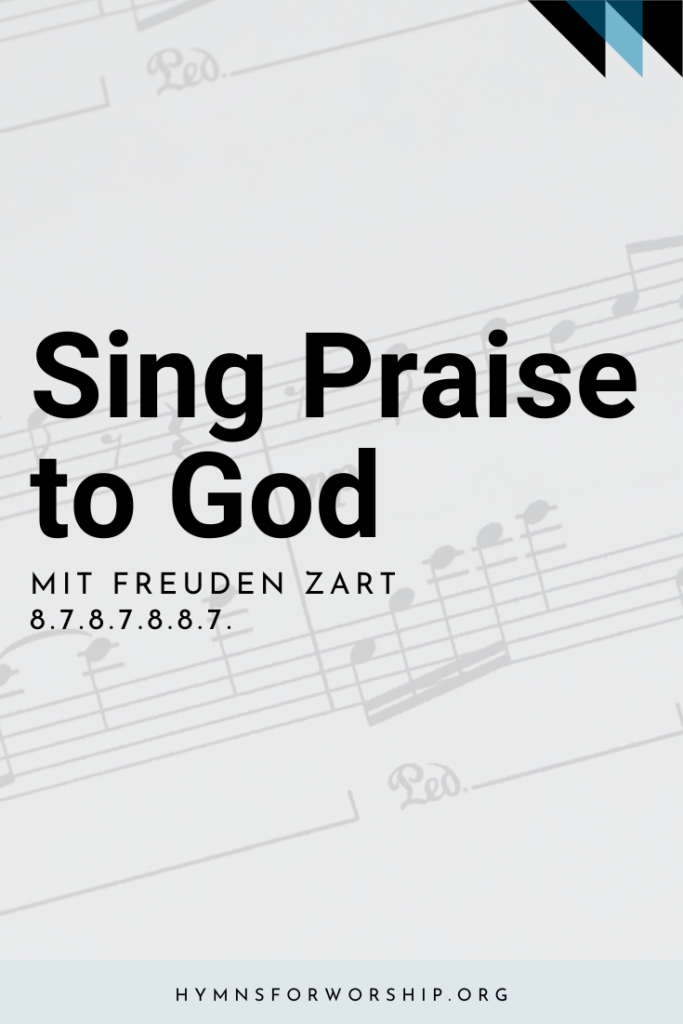
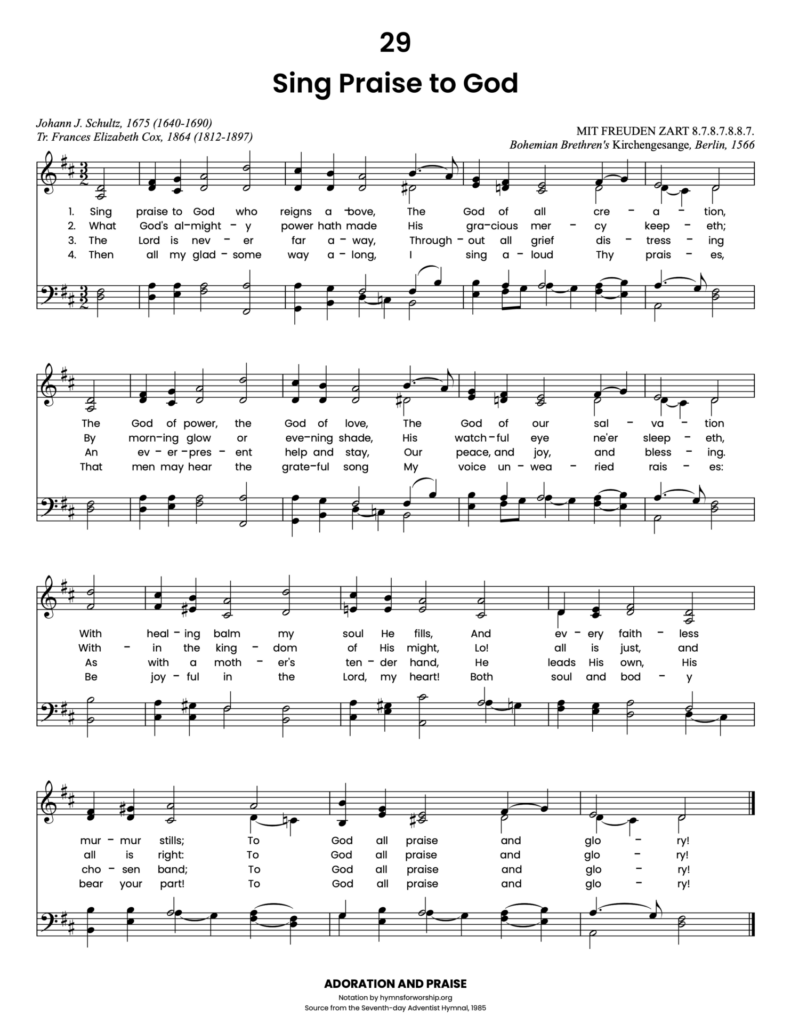
Get the hymn sheet in other keys here
For Worship Leaders
Make each hymn more meaningful with these helpful tools: Short, ready-to-use hymn introductions for church bulletins, multiple ways to introduce a hymn based on your worship theme and in-depth history and insights to enrich your song service.
Hymn Spotlight: Sing Praise to God
A hymn of thanksgiving, Sing Praise to God is based on Deuteronomy 32:3—“Because I will publish the name of the Lord: ascribe ye greatness unto our God.” Originally written in 1675 by Johann Jacob Schütz, it was later translated into English by Frances Elizabeth Cox in 1864, becoming a treasured part of Lutheran hymnody.
Schütz (1640–1690) was a lawyer and devout theologian in Frankfurt, Germany. Influenced by Philipp Spener, he later became part of the Separatist movement, seeking a deeper spiritual life beyond traditional Lutheranism.
The tune, MIT FREUDEN ZART (With Tender Joy), is linked to the Bohemian Brethren, followers of John Huss who fled persecution in the 16th century. The melody, believed to date back to the Middle Ages, carries the spirit of joy and resilience, making it a fitting setting for this hymn of praise and trust in God.
As we sing today, may our voices proclaim God’s greatness, lifting joyful thanksgiving for His faithfulness!


Text
1
Sing praise to God who reigns above,
the God of all creation,
the God of power, the God of love,
the God of our salvation.
With healing balm my soul He fills,
and every faithless murmur stills;
To God all praise and glory!
2
What God’s almighty power hath made
His gracious mercy keepeth;
By morning glow or evening shade,
His watchful eye ne’er sleepeth,
Within the kingdom of his might,
Lo! all is just, and all is right:
To God all praise and glory!
3
The Lord is never far away,
throughout all grief distressing,
an ever present help and stay,
our peace and joy and blessing.
As with a mother’s tender hand,
He leads His own, His chosen band:
To God all praise and glory!
4
Then all my gladsome way along,
I sing aloud thy praises,
that men may hear the grateful song
my voice unwearied raises:
Be joyful in the Lord, my heart!
both soul and body bear your part!
To God all praise and glory.

Hymn Info
Biblical Reference
(a) Ps 148:5 (b) Ps 121:4 (c) Ps 46:1, Isa 66:13
Author
Johann J. Schutz (1640-1690)
Translator
Frances Elizabeth Cox (1812-1897)
Year Published
1864
Hymn Tune
MIT FREUDEN ZART
Metrical Number
8.7.8.7.8.8.7.
Tune Source
Bohemian Brethren’s Kirchengesange, Berlin
Year Composed
1566
Theme
ADORATION AND PRAISE

